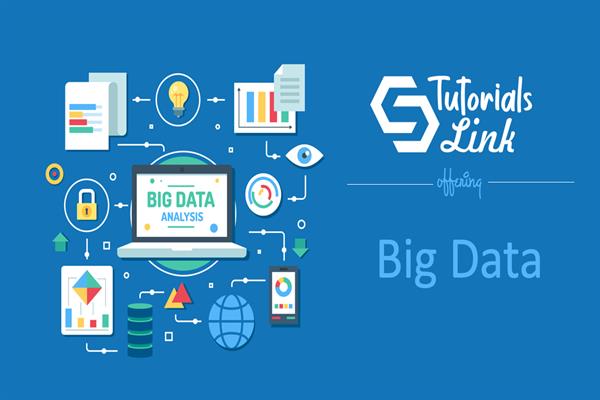Massive Big Data Processing-Software and Tools
Data is everything in today's world as the data is increasing exponentially every year. Earlier we used to talk about kilobytes, megabytes. But now we talk in terms of petabytes and zettabytes.
Big data analytics is an essential part of business nowadays. Data is useless until it turns into useful information that will help the management to make decisions beneficial to their business. There is plenty of software available in the market. This software helps in storing, analyzing and doing a lot more with the data.

This is the list of top big data tools based on features, popularity, and usefulness.
1. Apache Hadoop
Apache Hadoop is a software framework for distributed file system and handling of big data. It is designed to scale up from a single server to the thousands of machines. It processes the datasets of big data by the MapReduce programming model. The main benefits and features of Hadoop are as follows-
- HDFS- Hadoop Distributed File System. It is the primary data storage system used by Hadoop application.
- MapReduce- It is a model for Big Data Processing.
- YARN- A resource scheduler for Hadoop Resource Management.
- Hadoop Libraries- It helps in enabling third-party modules to work with Hadoop.
2. Apache Storm
The storm is another Apache product. It is a distributed stream processing, a real-time framework for data stream processing. It is free and open-source. It works well with the HDFS. The main benefits and features of Apache Storm are as follows-
- Built-in fault tolerance.
- Auto-restart on crashes.
- Reliable at scale.
3. MongoDB
MongoDB is a NoSQL, documented oriented database. It is compatible with cross-platform and written in many languages like C, C++, and JavaScript. Many companies use MongoDB such as Facebook, eBay, Google, etc. The main features and benefits of MongoDB are as follows-
- Provides support for multiple technologies
- It is open-source.
- Stores any type of data from integer to strings, arrays, dates and boolean.
- Reliable and low cost.
4. Apache Spark
Apache Spark is in many forms an alternative and successor of Apache Hadoop. It does in-memory processing so it is much faster than MapReduce model which works on the disk processing. It can speed up a query by 100x if it is in the memory or by 10x if it is stored in the disk. In addition, it works well with the HDFS. The benefits and features of Apache Spark are as follows-
- Easy to use APIs for working on large datasets.
- Spark can speed up the process by 100x than Hadoop.
- Spark comes with high-level libraries, including supports for SQL queries, streaming data, machine learning and graph processing.
5. Apache Cassandra
Apache Cassandra is an open-source NoSQL database constructed to manage huge volumes of data distributed across many commodity servers. It is one of the main reasons behind the Facebook's success. It works well under workloads as it is constructed with no single point of failure. The main benefits and features of Apache Cassandra are as follows-
- High fault tolerance.
- Built-in high availability.
- Automated Replication.
- Handles massive data very quickly.
Conclusion
Big Data analytics is increasingly widespread in multiple industries from using it to analyzing data in banking to healthcare and government. There is plenty of open-source software are available for big data processing with different abilities. It is important to study the requirement of the project and choose the software accordingly.





